Abarth 500 595 695 vs BMW 3 Series Saloon – Performance, range & efficiency compared
Two cars, one duel: Abarth 500 595 695 meets BMW 3 Series Saloon.
Which one wins in performance, efficiency and value for money? Find out now!
Costs and Efficiency:
When it comes to price and running costs, the biggest differences usually appear. This is often where you see which car fits your budget better in the long run.
Abarth 500 595 695 has a clearly perceptible advantage in terms of price – it starts at 32600 £, while the BMW 3 Series Saloon costs 39900 £. That’s a price difference of around 7380 £.
As for range, the Abarth 500 595 695 performs decisively better – achieving up to 265 km, about 164 km more than the BMW 3 Series Saloon.
Engine and Performance:
Power, torque and acceleration are the classic benchmarks for car enthusiasts – and here, some clear differences start to show.
When it comes to engine power, the BMW 3 Series Saloon has a clearly edge – offering 530 HP compared to 155 HP. That’s roughly 375 HP more horsepower.
In acceleration from 0 to 100 km/h, the BMW 3 Series Saloon is clearly quicker – completing the sprint in 3.50 s, while the Abarth 500 595 695 takes 7 s. That’s about 3.50 s faster.
In terms of top speed, the BMW 3 Series Saloon performs clearly perceptible better – reaching 250 km/h, while the Abarth 500 595 695 tops out at 155 km/h. The difference is around 95 km/h.
There’s also a difference in torque: BMW 3 Series Saloon pulls convincingly stronger with 700 Nm compared to 235 Nm. That’s about 465 Nm difference.
Space and Everyday Use:
Cabin size, boot volume and payload all play a role in everyday practicality. Here, comfort and flexibility make the difference.
Seats: BMW 3 Series Saloon offers slightly more seating capacity – 5 vs 4.
In curb weight, Abarth 500 595 695 is a bit lighter – 1410 kg compared to 1575 kg. The difference is around 165 kg.
In terms of boot space, the BMW 3 Series Saloon offers decisively more room – 480 L compared to 185 L. That’s a difference of about 295 L.
When it comes to payload, BMW 3 Series Saloon noticeable takes the win – 495 kg compared to 385 kg. That’s a difference of about 110 kg.
Who comes out on top?
Overall, the BMW 3 Series Saloon shows itself to be outperforms in nearly all aspects and secures the title of DriveDuel Champion.
It convinces with the more balanced overall package and proves to be the more versatile choice for everyday use.
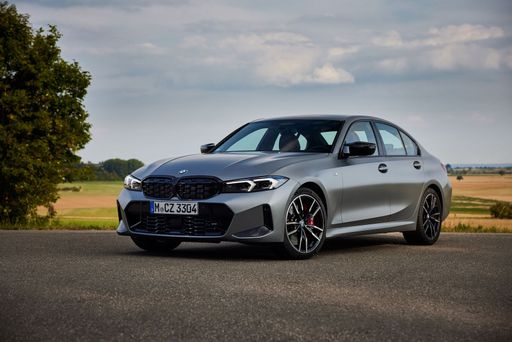 @ BMW Group Press
@ BMW Group Press
BMW 3 Series Saloon
Abarth 500 595 695
The Abarth 500, particularly in its 595 and 695 renditions, captures the spirit of Italian motoring with its compact yet aggressive design. Known for its lively performance and distinctive styling, this little powerhouse is a joy to drive, offering an engaging experience that appeals to enthusiasts. With its rich motorsport heritage, the Abarth 500 embodies the essence of fun and excitement on both the streets and the race track.
details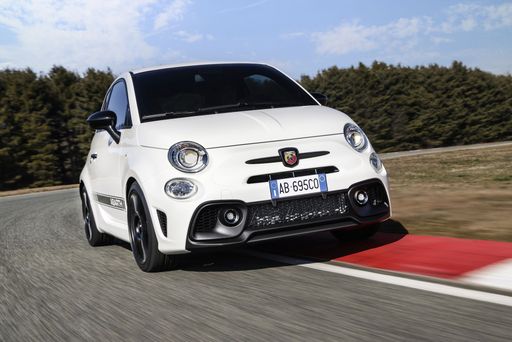 @ Abarth / Stellantis Media
@ Abarth / Stellantis Media
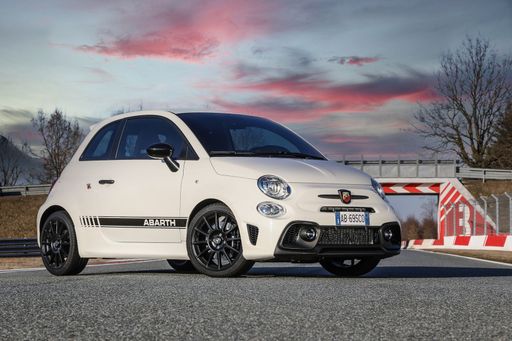 @ Abarth / Stellantis Media
@ Abarth / Stellantis Media
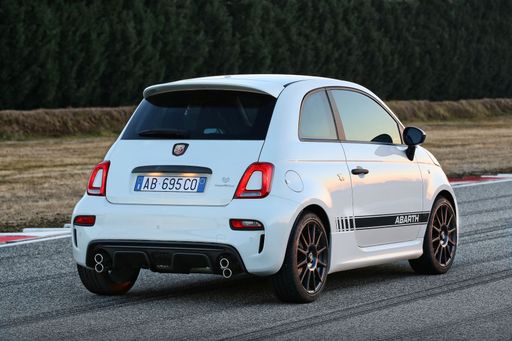 @ Abarth / Stellantis Media
@ Abarth / Stellantis Media
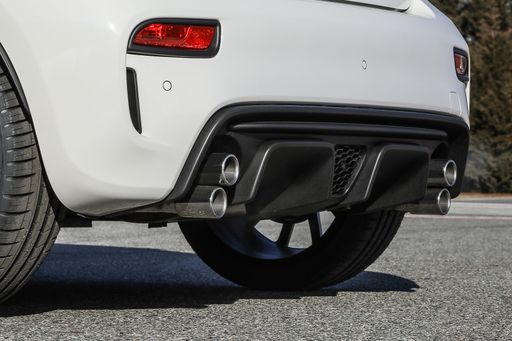 @ Abarth / Stellantis Media
@ Abarth / Stellantis Media
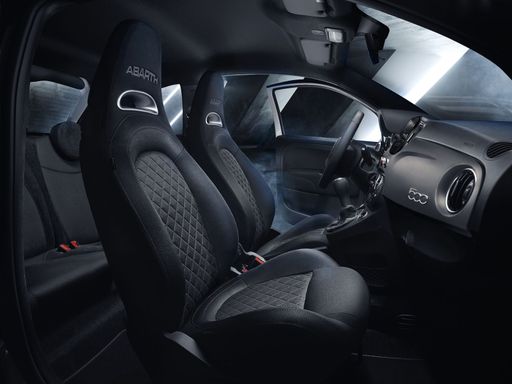 @ Abarth / Stellantis Media
@ Abarth / Stellantis Media
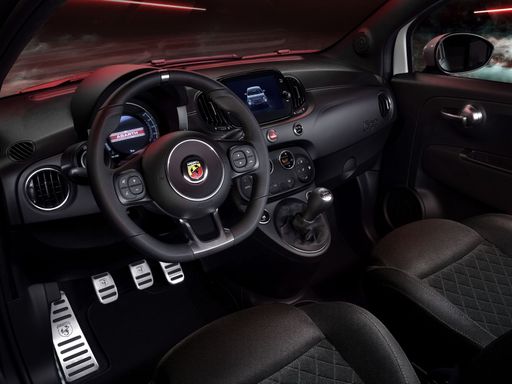 @ Abarth / Stellantis Media
@ Abarth / Stellantis Media
BMW 3 Series Saloon
The BMW 3 Series Saloon seamlessly blends elegance with sporty performance, offering a driving experience that's both dynamic and refined. Its meticulously crafted interior and intuitive technology create a comfortable and connected environment for both driver and passengers. On the road, the 3 Series delivers agile handling and a smooth ride, making it a standout choice in its class.
details @ BMW Group Press
@ BMW Group Press
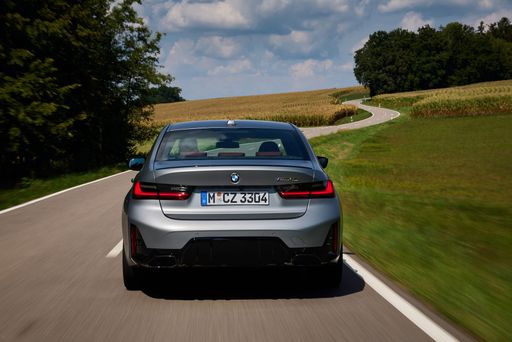 @ BMW Group Press
@ BMW Group Press
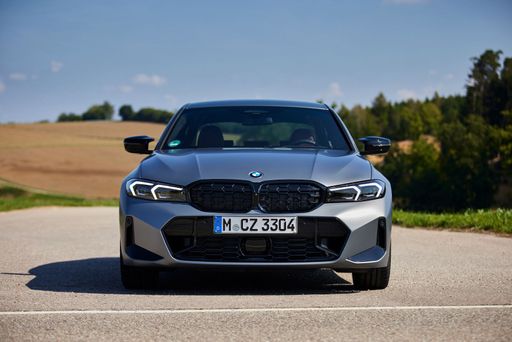 @ BMW Group Press
@ BMW Group Press
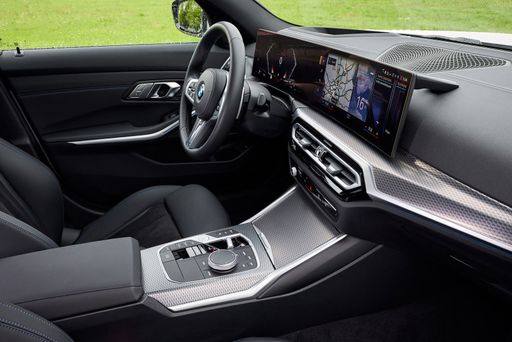 @ BMW Group Press
@ BMW Group Press
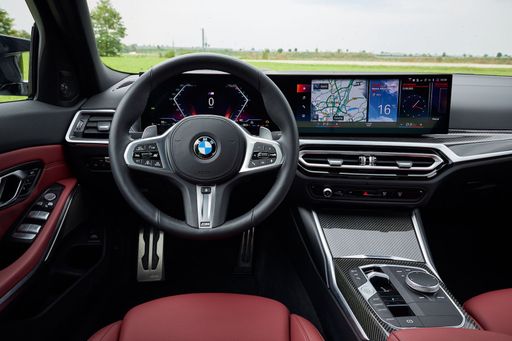 @ BMW Group Press
@ BMW Group Press
 @ Abarth / Stellantis Media
@ Abarth / Stellantis Media
|
 @ BMW Group Press
@ BMW Group Press
|
|
|
|
Costs and Consumption |
|
|---|---|
|
Price
32600 - 39400 £
|
Price
39900 - 91000 £
|
|
Consumption L/100km
-
|
Consumption L/100km
0.8 - 10.1 L
|
|
Consumption kWh/100km
17.1 - 18.8 kWh
|
Consumption kWh/100km
-
|
|
Electric Range
242 - 265 km
|
Electric Range
96 - 101 km
|
|
Battery Capacity
37.80 kWh
|
Battery Capacity
19.50 kWh
|
|
co2
0 g/km
|
co2
19 - 227 g/km
|
|
Fuel tank capacity
-
|
Fuel tank capacity
40 - 59 L
|
Dimensions and Body |
|
|---|---|
|
Body Type
Hatchback
|
Body Type
Sedan
|
|
Seats
4
|
Seats
5
|
|
Doors
3
|
Doors
4
|
|
Curb weight
1410 - 1435 kg
|
Curb weight
1575 - 1960 kg
|
|
Trunk capacity
185 L
|
Trunk capacity
375 - 480 L
|
|
Length
3673 mm
|
Length
4713 - 4801 mm
|
|
Width
1682 mm
|
Width
1827 - 1903 mm
|
|
Height
1518 mm
|
Height
1437 - 1446 mm
|
|
Max trunk capacity
550 L
|
Max trunk capacity
-
|
|
Payload
370 - 385 kg
|
Payload
405 - 495 kg
|
Engine and Performance |
|
|---|---|
|
Engine Type
Electric
|
Engine Type
Diesel MHEV, Plugin Hybrid, Petrol, Petrol MHEV
|
|
Transmission
Automatic
|
Transmission
Automatic, Manuel
|
|
Transmission Detail
-
|
Transmission Detail
Automatic Gearbox, Manual Gearbox
|
|
Drive Type
Front-Wheel Drive
|
Drive Type
Rear-Wheel Drive, All-Wheel Drive
|
|
Power HP
155 HP
|
Power HP
150 - 530 HP
|
|
Acceleration 0-100km/h
7 s
|
Acceleration 0-100km/h
3.5 - 8.6 s
|
|
Max Speed
155 km/h
|
Max Speed
218 - 250 km/h
|
|
Torque
235 Nm
|
Torque
250 - 700 Nm
|
|
Number of Cylinders
-
|
Number of Cylinders
4 - 6
|
|
Power kW
114 kW
|
Power kW
110 - 390 kW
|
|
Engine capacity
-
|
Engine capacity
1995 - 2998 cm3
|
General |
|
|---|---|
|
Model Year
2023
|
Model Year
2024 - 2025
|
|
CO2 Efficiency Class
A
|
CO2 Efficiency Class
D, E, B, F, G
|
|
Brand
Abarth
|
Brand
BMW
|
Is the Abarth 500 595 695 offered with different drivetrains?
The Abarth 500 595 695 is offered with Front-Wheel Drive.
The prices and data displayed are estimates based on German list prices and may vary by country. This information is not legally binding.
